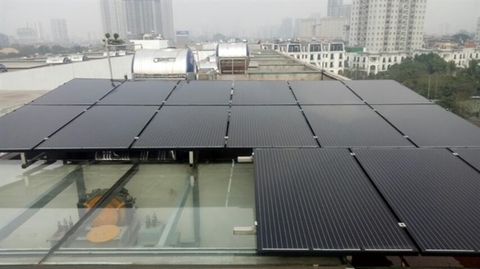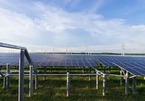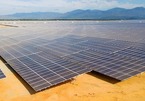After the government encouraged rooftop solar power, many farms in the southern part in the central region and Central highlands began developing solar power systems.

This is in line with the growing global tendency and fits Vietnam’s sustainable development strategy.
However, a problem has arisen that many investors have exploited encouragement policies to sell solar power. They are only cultivating a few plants on their land, while focusing on solar power.
Nguyen Van Tien, owner of an organic farm in Ninh Phuoc district in Ninh Thuan province, said the model of combining organic agricultural production with solar power can bring income of VND10 billion a year and hundreds of of jobs to ethnic Cham who live there at an average pay of VND8 million a month.
Tien began running his rooftop solar power system at his farm in May 2018. However, the Ninh Thuan Power Company signed contracts on buying electrcity from two rootop solar power projects under rules of Decision 11.
As for the other 10 projects, the company has installed meters to record electricity output, but has not signed contracts. The reason is that the Ministry of Industry and Trade (MOIT) still has not released necessary documents about whether this is really ‘rooftop solar power’.
Under the newly released Decision No 13, rooftop solar power systems have solar pannels installed on the roof of construction works and they have the capacity of no more than 1 MW. The systems connect directly or indirectly to the electricity buyers’ grid with voltage of 35KV or lower.
Decision 11 only stipulates that a rooftop solar power system should be installed on the roof or attached to construction works, and connect directly to the electricity’s buyers grid.
This means that farm solar-power projects are unlikely to enjoy the good price of VND1,900 per kwh applied to rooftop solar power projects.
The Electricity and Renewable Energy Authority has recently afffirmed that solar power systems mounted on brackets on lakes, shrimp ponds or hi-tech agricultural crop fields, not on the roof of construction works, will not be considered ‘rooftop solar power’.
| According to experts, it is more costly to develop APV than ground-mounted solar power, and the cost to invest, operate and maintain 50 1MW APV projects is much higher than one 50 MW ground-mounted solar power project. |
Disagreeing with the conclusion, Tien complained that the policies change too regularly. The unpredictability creates problems for investors when developing projects.
He said it was unreasonable to require solar panels ‘on the roof’. Investors will have to spend more money to have a roof, and this will affect the performance of photovoltaic panels. More seriously, the ‘roofs’ will kill agricultural crops.
Tran Anh Dong, director of the Control and Automation Solutions Company, believes that Vietnam should encourage rooftop solar power because of its reasonable cost.
He said EVN doesn’t have to spend money to mobilize rooftop solar power, because the electricity is connected to the 22 KV and 35 KV medium-voltage grids, which already exist. .
Moreover, rooftop solar power doesn’t take land for agricultural production, doesn’t affect people’s livelihoods, and doesn’t create land deserts.
As for APV, roofs will affect agricultural production, because they prevent light, and crops cannot grow. Besides, roofs will affect the performance and life expectancy of photovoltaic panels.
According to Dong, the Electricity of Vietnam (EVN) needs power generation sources, so the generation of solar power, no matter whether it is from systems on lakes, ground, or agriculture and irrigation works, should be encouraged.
Regarding the electricity selling price, the government should fix prices that are high enough to encourage investments, and not care about whether solar power systems are installed on the roof of construction works.
“If the prices are encouraging enough, many people will be able to develop rooftop solar power. Not many people have enough money to develop on-grid solar power projects,” he said.
According to experts, it is more costly to develop APV than ground-mounted solar power, and the cost to invest, operate and maintain 50 1MW APV projects is much higher than one 50 MW ground-mounted solar power project.
Therefore, it is reasonable to encourage APV by fixing the electricity price at 8.35 cent per kwh. Besides, the benefits APV can bring to people and the country are much higher than ground-mounted solar power.
Tran Thuy

Solar power investors fear they may not be able to enjoy preferential FIT
Covid-19 and the slow implementation of power transmission projects may make it impossible for solar power projects to connect to the national grid by the end of the year.

Vietnam considers bidding on solar power prices
A policy allowing investors to bid on solar power prices is being developed by the Vietnamese Ministry of Industry and Trade (MOIT). It is expected to be submitted to the Prime Minister this August and applied this year.